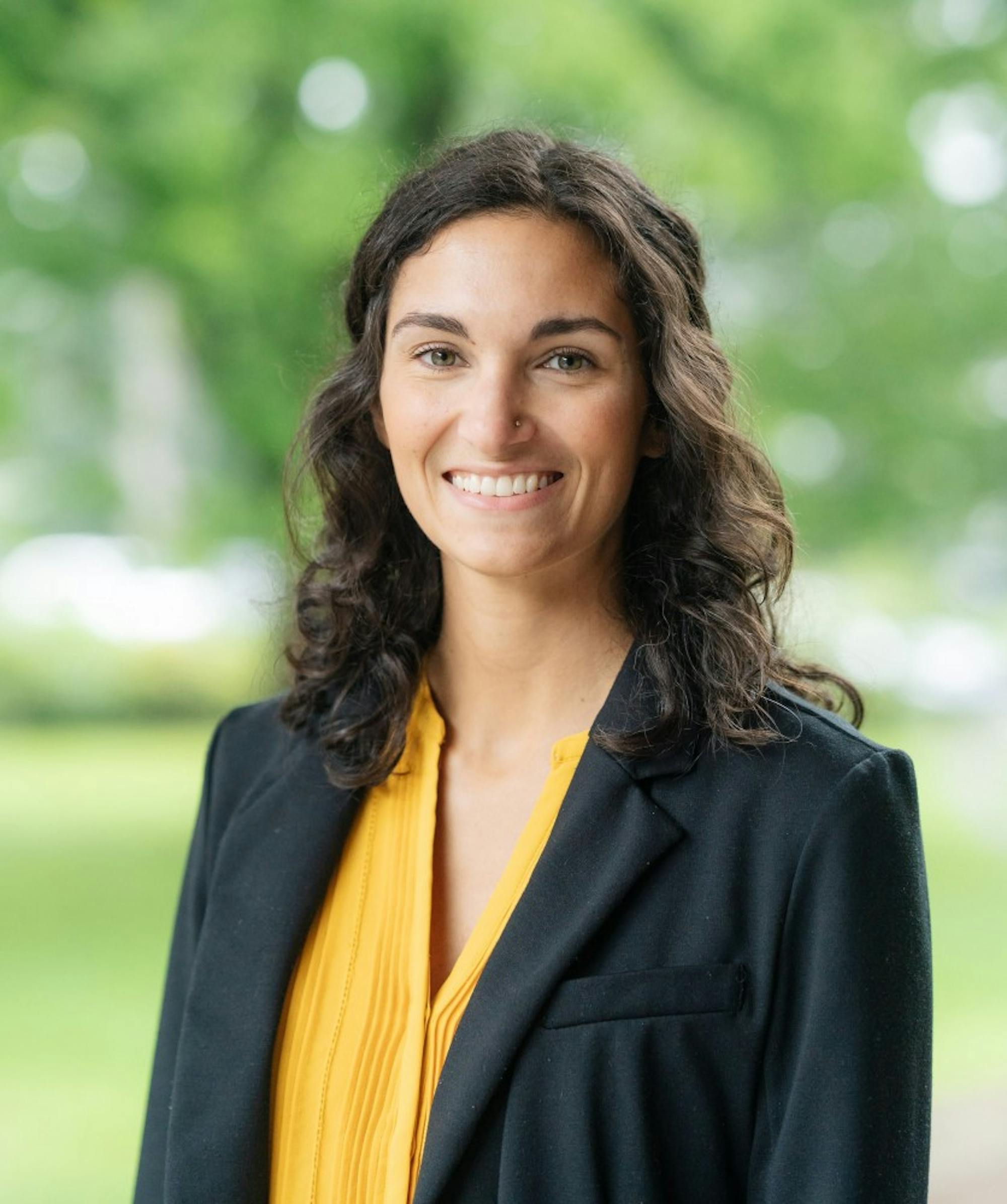Government professor Mia Costa, one of the College’s new faculty hires, joined Dartmouth in July 2018. Costa, who hails from Long Island, New York, obtained her undergraduate degree in political science from the State University of New York at New Paltz and a Ph.D. in political science from the University of Massachusetts Amherst. In the fall, she taught Government 10, “Quantitative Political Analysis” and Government 83.22, “Political Representation,” and she will be teaching two sections of Government 3, “American Political System” in the spring. In addition to teaching, Costa uses various experimental methods to investigate what people think about politics, how they evaluate their representatives and how various parts of people’s identity — such as gender — may impact their political views.
How did you get interested in studying political science?
MC: I was interested in politics from a young age. Both of my parents have always talked about politics and being engaged in civic life. I grew up with an ear to current events and wanting to learn more about what was going on. When I started college, I knew I was going to be a political science major and wanted to get a Ph.D in political science. I fell in love with the political theory class I took in college, and I wanted to be up in front of the class teaching.
What attracted you to Dartmouth?
MC: Dartmouth was one of my top choices. It is excellent in being focused on both teaching and research. Some institutions might have a focus on one or the other, but Dartmouth emphasized both. I really liked the government department and my colleagues. All in all, it’s such a great school. I was very happy to get this position and feel really lucky that Dartmouth was interested in me, because getting a tenure-track position is very precarious and difficult.
What does your day-to-day schedule look like?
MC: I get up, walk my dog and if I’m not teaching, I spend most of my day doing research. I run statistical analyses and spend a lot of time making visualizations if I am working on results for a new paper. I also work on writing up my research into an article to submit for peer review. I also spend some parts of my day going to meetings, answering emails and various things like that. If it’s a teaching term, I spend a lot of time prepping for class.
What is your favorite part about Dartmouth?
MC: I like how engaged the students are. I came from a public school background all the way from pre-kindergarten through my Ph.D., so I’m used to a different kind of environment. That’s not to say that students from my previous experience were not excellent, but students at Dartmouth are really engaged and really motivated to do well in classes. They wanted to get to know me more, hear more about my work and talk to me outside of class. This was really different from what I was used to.
What was most surprising to you about Dartmouth?
MC: I was surprised by the level at which students performed and how they are on top of everything. Even though I knew Dartmouth was different, that’s still surprising to me. Every time students overachieve, I am very pleasantly surprised.
What do you hope students take away from your class?
MC: Anything. One of the hardest things is not knowing what sticks. In my past experience, there have been many times when I have tried to teach a concept that I think is very valuable and interesting and noble, and it doesn’t necessarily resonate with students. Other times, I am teaching a run-of-the-mill concept but some students just pick that up and that’s what they take away from the class. People have different perspectives on what makes them tick and what is important to think about the world and government. As long as they are taking anything away from the class, who am I to say what is valuable to take away? I think if they get to think about something differently, then that’s valuable.
What is your advice for Dartmouth students, whether or not they may be pursuing a degree in government?
MC: For students pursuing government, one thing I would say is that there is a lot of different things you can do with a government degree. You should feel comfortable talking to your professors about what your options might be after college. For all students, don’t worry so much about what you’re going to do after college. Students at Dartmouth are so engaged, motivated and doing their best, sometimes at the expense of their well-being. Mental health is most important. I found that a lot of students are very stressed and anxious about what to do after college. Everything will work out. You will find yourself on different paths in life and there’s lots of different things to do with your degree. If I were to talk honestly: chill out, take care of yourself and everything will be fine. Talk to your instructors about what you’re interested in. We’re here to help you navigate that journey.
This interview has been edited and condensed for clarity and length.
Correction appended (Mar. 7, 2019): This article has been updated to accurately reflect Costa's daily schedule.




